As the news of entrepreneur Nithin Kamath suffering a stroke sparks conversation around the increasing cases of seemingly fit, healthy individuals falling prey to sudden ailments, experts warn of red flags when you must slow down your routine
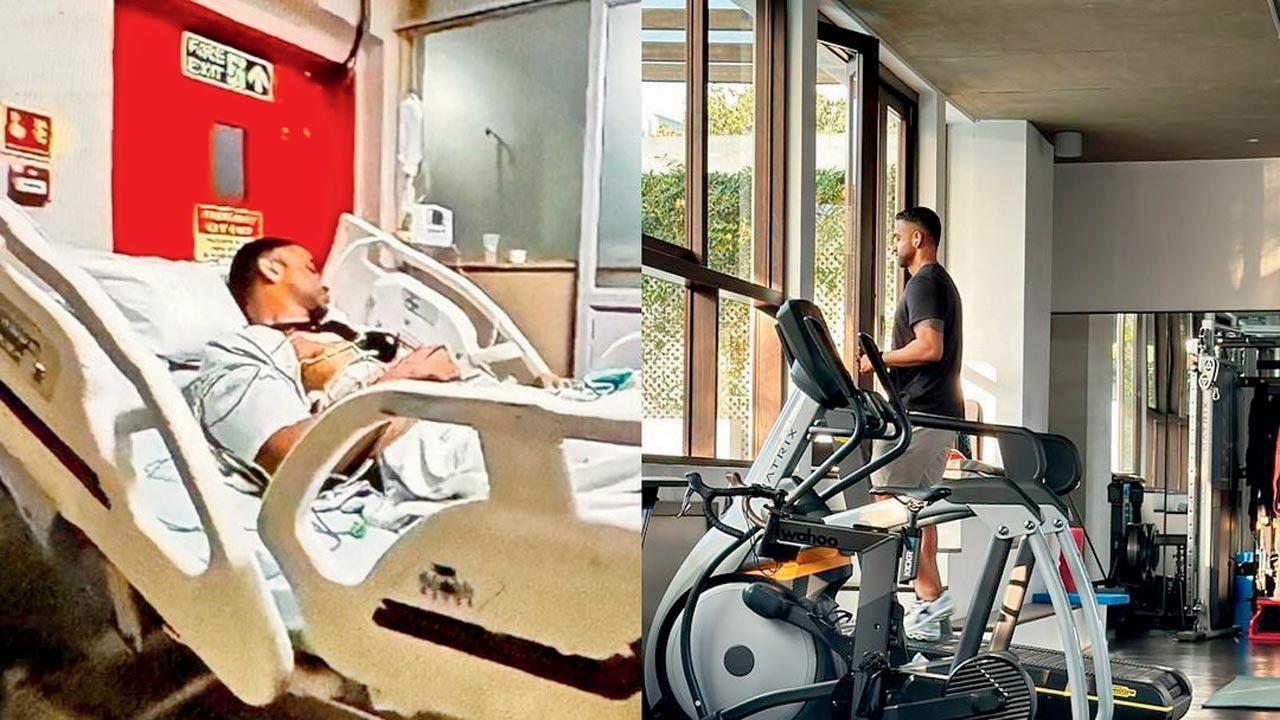
Nithin Kamath rests in his hospital bed during his recovery period in the hospital; (right) Kamath works out on the treadmill following his recovery. Pics Courtesy/Instagram
Entrepreneur duo Nithin and Nikhil Kamath, who founded Zerodha have for long been poster boys on social media for their healthy lifestyles. Nithin, the elder brother, has often revealed in interviews that he follows a rigorous routine — early mornings, a strict diet with no room for bingeing, regular workouts, and lights out by 9 pm. Textbook-healthy, right? Well, not quite. Nithin, 44, who has been termed “the gym bro who makes big bucks” by fans recently revealed that he suffered a minor stroke, proving that even the fittest need to listen to their bodies. “My doctor told me that I must know when to shift gears; bring it down a bit,” he shared in a post. So, how do you find that sweet spot between pushing yourself and taking a breather? A lifestyle expert, a cardiologist, and a sports psychologist break it down for us.
ADVERTISEMENT
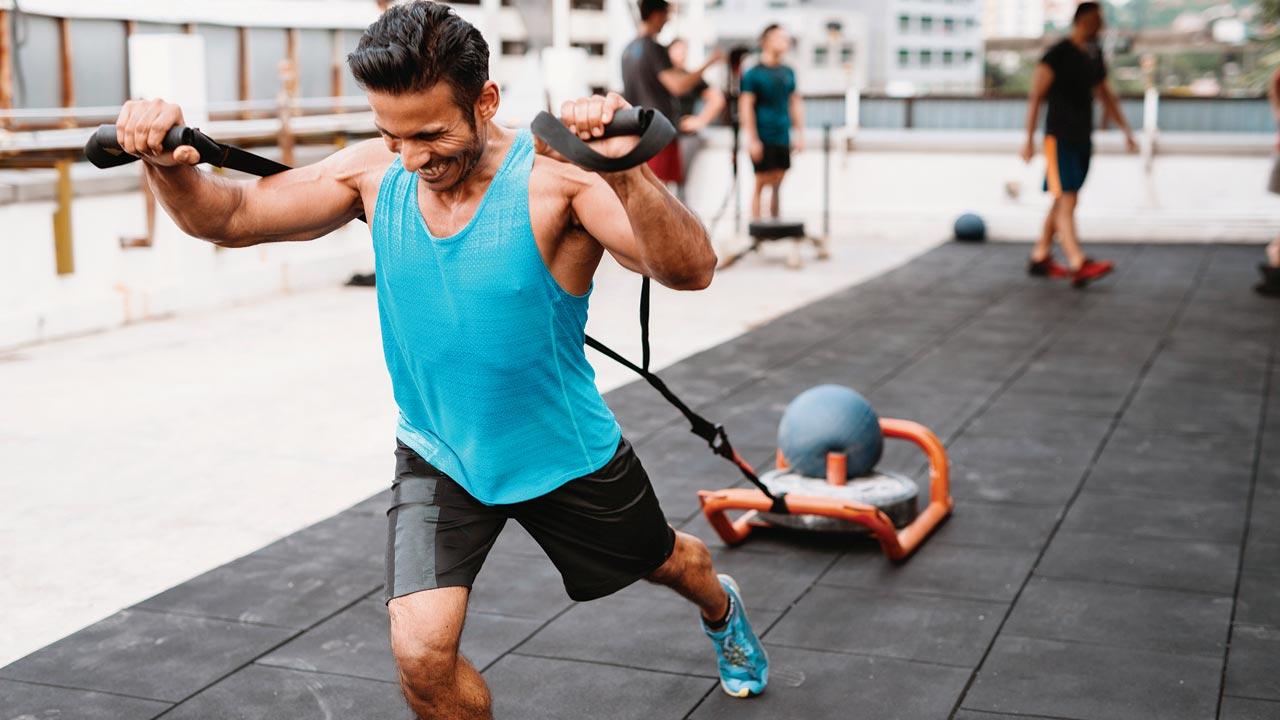 Avoid ego-lifting to one-up on your peers. Representation pics
Avoid ego-lifting to one-up on your peers. Representation pics
No room for ego
Luke Coutinho, lifestyle expert, believes the first step is leaving your ego at the door when you hit the gym. “It is essential to learn how to crawl before walking. People often ego-lift, attempting to lift more than others merely to one-up their peers, leading to severe injuries. If overtraining is necessary for specific exercise goals, incorporating rest and recovery into your plan is non-negotiable.”
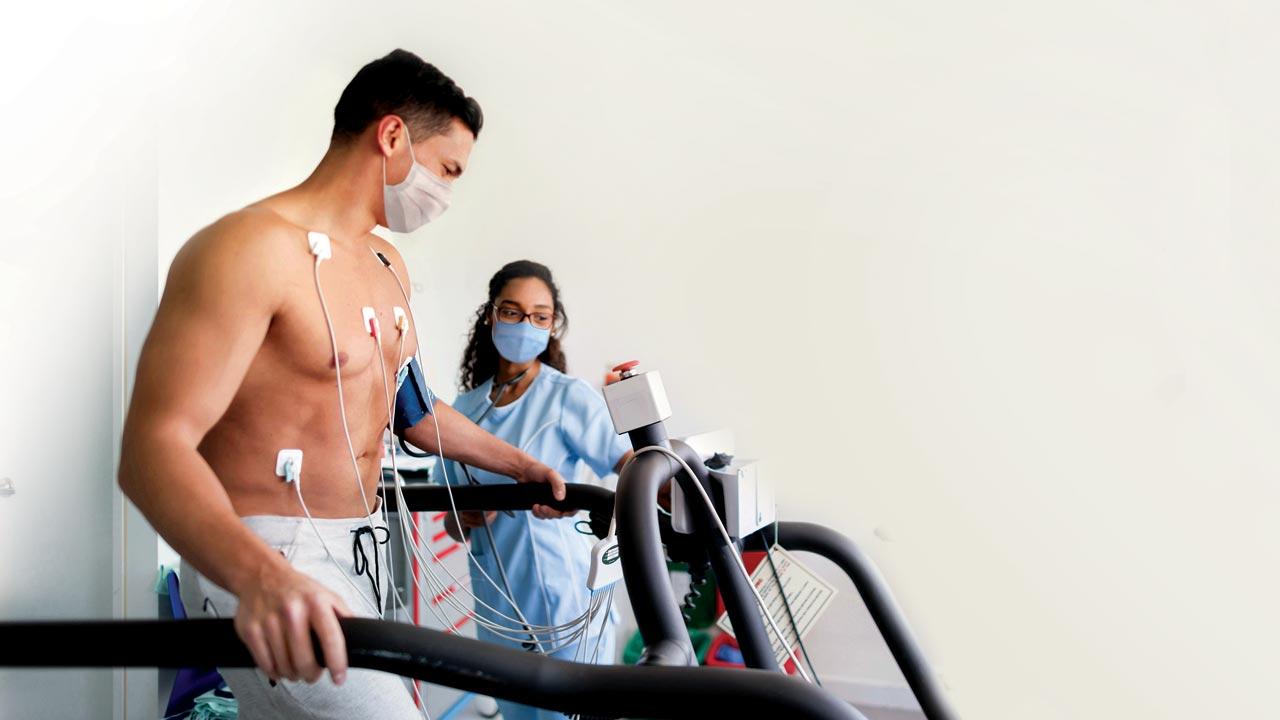 Get regular stress tests done after the age of 35 to keep a check on your heart
Get regular stress tests done after the age of 35 to keep a check on your heart
The issue, however, persists as most individuals might not recognise that they are pushing themselves beyond their limits in the first place. Dr Nihar Mehta, associate director, department of structural heart diseases, Jaslok Hospital and Research Centre, shares a handy list of warning signs. “Early signs of pushing too hard physically include chest discomfort, unusual shortness of breath, persistent or undue fatigue after workouts and severe soreness of muscles or dizziness. Do not sweep these signs under the rug,” he suggests.
 Sleep deprivation can be a silent killer among young adults; (right) Explore alternative forms of wellness like yoga and walking
Sleep deprivation can be a silent killer among young adults; (right) Explore alternative forms of wellness like yoga and walking
Pause and reflect
Mehta shines a light on the importance of taking time off to gauge if you’re on the right path and suggests one should regularly get their heart and blood check-ups done, as many lifestyle diseases don’t manifest symptoms until it’s too late. “Based on your current health status, family history and risk factors, a regular heart check-up including an electrocardiogram (ECG), echocardiography and a stress test that logs your heart’s performance during exercises of increasing intensity in a controlled environment, are recommended at least once in two years, especially after the age of 35,” he remarks, adding that these tests determine how hard you can push yourself.
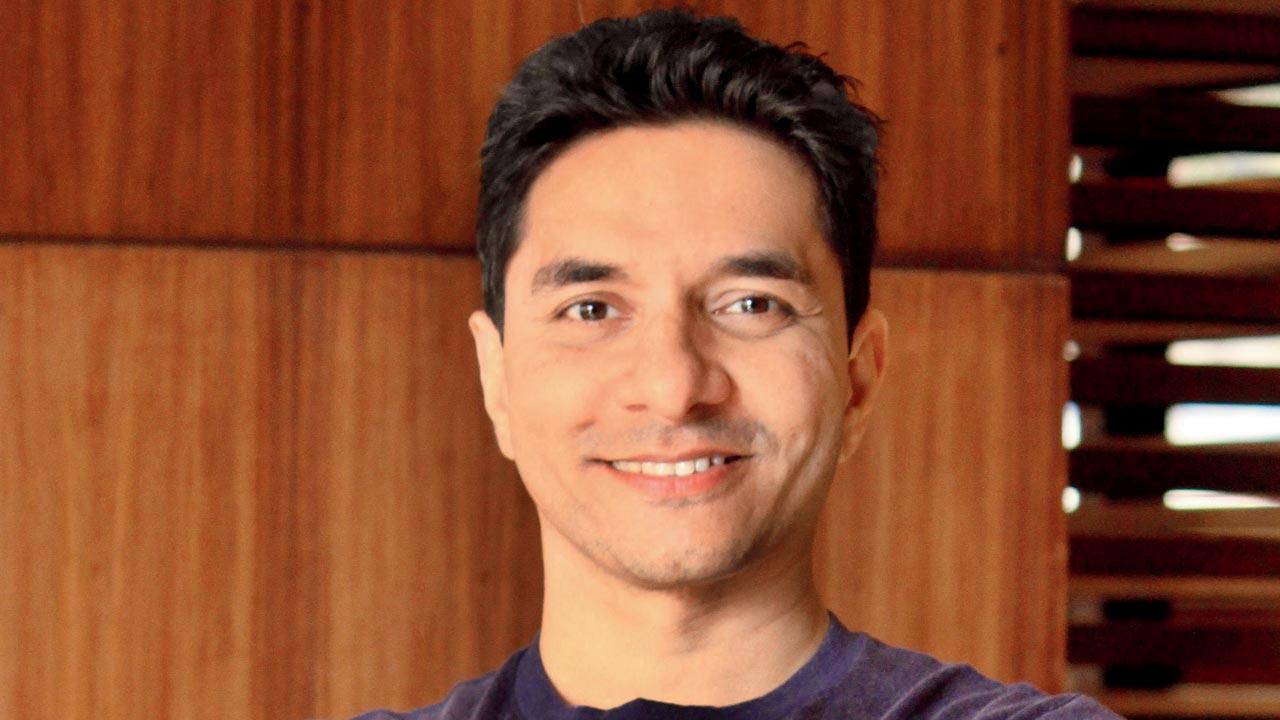 Luke Coutinho
Luke Coutinho
Kunashni Parikh, former U-17 Indian football team vice-captain and sports psychologist, adds that instead of rushing into a workout that worked for someone else, one must reflect on their own needs. “Set progress goals rather than outcome goals. Instead of looking at how many kilos you want to lose or gain in a month or how many weights you can lift, focus on processes. Explore alternate forms of exercise. Not everybody needs to end up at the gym. Swimming, dance, playing a sport, walking, and yoga can provide alternate forms of exercise which can work on all muscle groups.”
Mind over muscle
Today, when most heart attacks occur, the biggest debate revolves around increasing cholesterol levels and triglycerides. While these medical parameters undoubtedly play a vital role, Coutinho believes a bigger issue remains overlooked — chronic stress. “We live in deeply stressful and overly competitive times. Even children face stressors that didn’t exist earlier, including achieving goals, dealing with peer pressure, and fitting in. In addition to young corporate workers, even school-going kids sleep after 11 pm nowadays. When autoimmune conditions affect their sleep-deprived bodies, parents who invest in organic food and expensive supplements find themselves at a loss for words,” he sighs.
Parikh agrees, adding that sleep deprivation and a disturbed circadian rhythm can cause more damage than one might think. “Exercise causes oxidative stress to your muscles which requires adequate rest to restore. Sleep resets the homeostasis level in the body. The body has a biological need for recovery. It restores dopamine and the right nutrition keeps serotonin high and checks your mood. Over-exercise can also become an addiction if not kept in check.,”
she notes.
Ditch the hustle culture
The experts unanimously voice their concerns about the perils of the hustle culture that has taken over the internet in the past decade. Parikh shares her learnings, “It’s easy to get caught up in the flashy transformation reels or those ‘no days off’ posts. Remember, for every post you see, there’s a lot you don’t — like the years of training, the days off, the injuries, and the setbacks, which makes the experience whole,” adding that the culture of constant hustle, while often glorified, can lead to detrimental effects such as burnout and exhaustion. This state of chronic stress results in a deterioration of mood, productivity, and can cause anxiety and stress, significantly impairing daily functioning and also our immunity. Coutinho concludes, “Burnout or damaging yourself in the name of hustling isn’t a show of strength; it’s a sign of losing control.”
Cut the noise
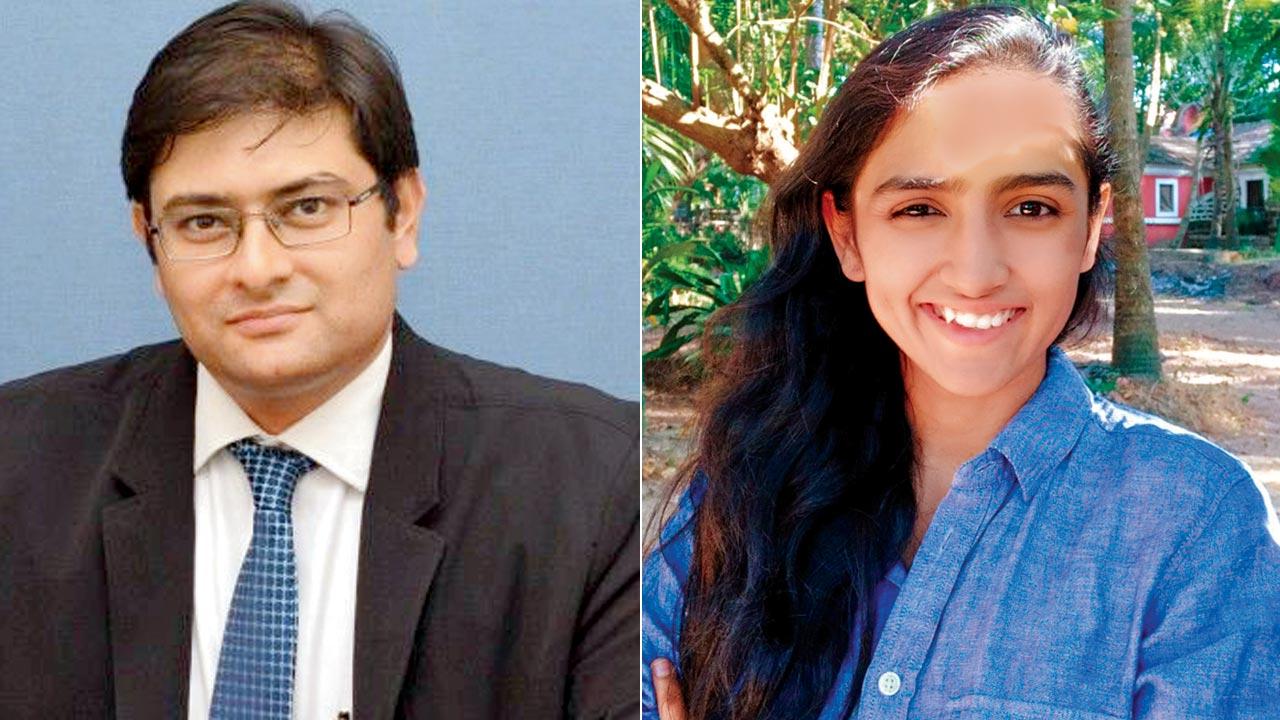 Nihar Mehta and Kunashni Parikh
Nihar Mehta and Kunashni Parikh
Social media platforms are a hotbed for self-proclaimed medical and fitness ‘influencers.’ Our experts read the riot act
. Be cautious of quick fixes, sensational claims and promises of extraordinary results on social media
. Do a quick background check on Google about the original poster and verify their credentials and qualifications
. Keep an ear out for the language used. Qualified doctors will always use evidence-based language
. Look for intrinsic rather than extrinsic sources of motivation from social media. Intrinsic motivation comes from a source of internal enjoyment and drive which sustains for much longer
. Always remember that workout regimes that might have worked for a certain individual need not have universal effectiveness
. Find certified instructors, preferably through referrals, who know the ins and out of exercise, and can guide
you properly
Dr Nihar Mehta and Kunashni Parikh
 Subscribe today by clicking the link and stay updated with the latest news!" Click here!
Subscribe today by clicking the link and stay updated with the latest news!" Click here!







